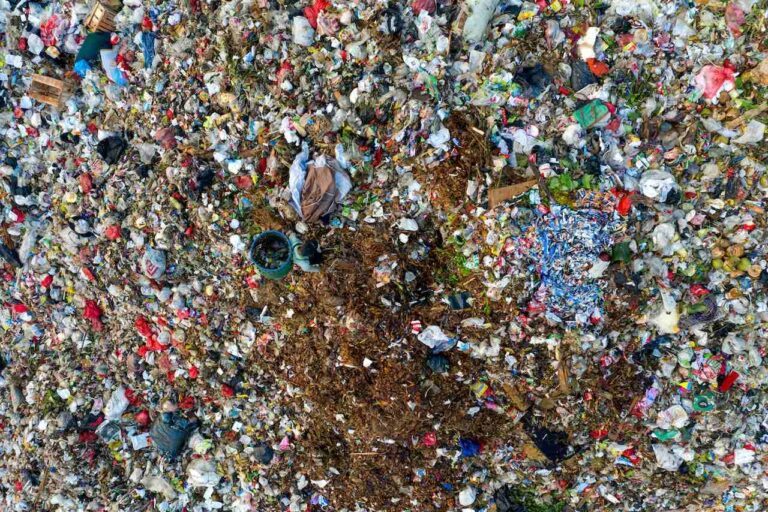“Eliminate plastic pollution” is the slogan-appeal of World Environment Day 2023, established by the United Nations 50 years ago, on 5 June 1973. Three the watchwords: recycle, reuse and reduce.The message is clear. The world is choking on plastic and action must be taken now.
Saturday saw the conclusion of the International Negotiating Committee (INC) attended by 175 countries that approved a draft agreement on plastic abatement to be considered in November in Nairobi, with the goal of a final treaty by 2024.
Every year humanity produces about 430 million tonnes of plastic. Half of which is designed to be used only once. Of this, less than 10 per cent is recycled, the UN recalls, adding that an estimated 19-23 million tonnes end up in lakes, rivers and seas every year. This is almost as much as the weight of 2,200 Eiffel towers all together.
Not only that, if no action is taken soon, annual plastic production could triple by 2060.
Table of Contents
The three ‘R’s
Plastic is everywhere: in soil, seas, rivers, lakes, air, food. While it benefits humanity, its impact on every living thing and habitat is increasingly devastating. Each person seems to consume more than 50,000 plastic particles per year (many more if inhalation is taken into account). And the damage to species and human health is (almost) irreversible.
Plastic pollution in nature – explains the WWF – has exceeded the ‘planetary boundary’. Beyond which there is no longer any guarantee that ecosystems will provide favourable conditions for life.
Pollution that could be reduced by 80 per cent by 2040 if countries and companies made profound policy and market changes using existing technologies. UNEP noted this in its latest report entitled ‘Turning off the tap. How the world can end plastic pollution and create a circular economy’, published ahead of the second round of negotiations in Paris (29 May to 2 June) on a global agreement to defeat plastic pollution.
The report points to solutions based on the 3 Rs:
- reuse (it would cut 30% of pollution over the next 17 years);
- recycling (for an additional 20% less and up to 50% by eliminating fossil fuel subsidies and strengthening guidelines to improve recyclability);
- repurposing (17% less by using alternative materials).
The costs
Moving to a circular economy would result in direct and indirect savings of around $4.5 trillion and a net increase of 700,000 jobs by 2040. The costs for the recommended changes are significant. But lower than what would be spent in the absence of a systemic change. Namely, $65 billion per year compared to $113 billion per year.
The stakes are high. Annual plastic production has more than doubled in 20 years to 460 million tonnes. It could triple by 2060 if no action is taken.
Plastic production is responsible for about 3.7% of global greenhouse gas emissions. And it is predicted that this percentage could increase to 4.5% by 2060 if current trends continue unchecked.
Read also: Single-use plastic, the countries that have banned it
The two scenarios
According to Earth4All, an international initiative to accelerate the systemic change we need for an equitable future on the planet, the current “dominant economic model is destabilising societies and the planet”. And it is time to change. Thus especially by updating our economic system.
Two possible scenarios were modelled. The first, entitled ‘Too Little, Too Late’ reflects our current trajectory. According to this scheme, the questions to be urgently asked are: “What if societies continue at a similar pace, setting goals but not taking strong collective action? Will we cross irreversible points of no return, threatening the foundations of Earth’s stable climate? Will driven inequality lead to worsening social tensions?”
The second scenario, titled ‘Giant Step’, assumes that societies will embark on a new path towards a sustainable world by 2050. But the questions to be asked are: “What if we radically reconfigure our economies, energy and food systems so that they work for both people and the planet? Can we avoid the worst impacts of climate change and increase the resilience of our societies to shocks? Can we end extreme poverty, ensuring a healthy diet and access to quality education and healthcare for all?”
So, continue in the same direction as today or straighten the Planet’s course? “There is no more time to lose,” agree the scientists. Not least because this Earth ‘is the only one we have’.












